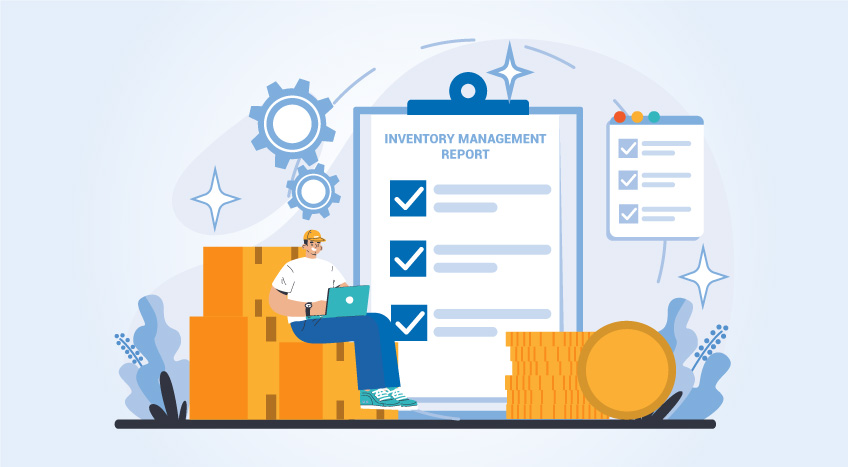- What is Real Estate Accounting Regulations in US?
- Why Do Real Estate Agents Need Accounting?
- Real Estate Accounting Basics—What to Track
- Accounting Best Practices for Real Estate Agents in USA
- How to Simplify Your Real Estate Accounting Needs?
The real estate business may seem to be all about the properties that are bought and sold. Good real estate accounting practices are essential to have a good grip on your finances for tax payments and compliance. You may find real estate accounting a little overwhelming, but good accounting practices and the right software tool make it easy to implement.
What is Real Estate Accounting Regulations in US?
The Financial Accounting Standards Board (FASB) is a non-profit organization designated by the Securities and Exchange Commission (SEC) as the official body to set accounting practices in the country.
The federal government imposes specific standard accounting practices for the following reasons:
- To create greater transparency and uniformity in real estate accounting records for the benefit of investors, creditors, and government entities
- To protect the investors in real estate
- To maximize the contribution of the real estate sector to the GDP (Gross Cosmetic Product)
- To ensure the distribution of wealth
- To ensure that the mistakes that caused the 2007 financial crisis does not happen again.
Why Do Real Estate Agents Need Accounting?
Like any other business, real estate agencies need proper accounting procedures to keep track of their finances. It makes professional sense to keep the records of all financial transactions well. Good recordkeeping is the only way to get an accurate and clear picture of the financial health of your business. Accurate financial reports are vital to making informed business decisions.
Some good reasons to implement a real estate accounting system in your agency are:
- It gives you a clear picture of the agency’s financial health
- Real estate accounting helps you manage money better
- If there are any red flags or something that is working well, you will be able to spot them easily
- You can gain valuable insights into the trends in your business over time
- Generating tax returns and other reports are straightforward when you have a good real estate accounting system
- You can report quickly and accurately to investors, creditors, shareholders, and government entities
- You can manage all your payments better and in a more timely manner.
Real Estate Accounting Basics—What to Track
The essential elements tracked in accounting are; assets, liabilities, equity, income, and expenses. These are the five different elements that could be affected by any transaction.
Asset: An asset is something that the company owns and uses to benefit itself. It is something that generates money for the company.
Liability: The opposite of an asset is a liability. It is something that the company owes.
Equity: Equity is the difference between assets and liabilities. It tells us about the value of the company. If the business has more than one owner, the amount of equity in the company is accounted for separately for each owner.
Equity = Assets – Liabilities
Income: The amount that is charged and received for goods or services is called income. In real estate, the most common form of income would be through commissions.
Expenses: Any money paid (other than for debt) is an expense. Money paid towards staff salaries is an expense.
The most important transactions that would be recorded in real estate accounting are:
Income From Commissions: When a real estate firm closes a deal, they earn a commission. This is the primary source of income, and it is essential to track and record this accurately.
Association Fees and Expenses: If a real estate agent is associated with a more prominent brokerage or firm, they would have to pay a portion of their income to the associated firm. Membership fees paid to associations and organizations are also expenses in real estate accounting.
License And Education Costs: To maintain your real estate license, you would have to stay continually updated. Staying updated costs money for continuing education as well as the license renewal cost. These costs should also be accounted for.
Office Charges: Maintaining a physical office costs rent and maintenance costs. Renting event space is also an expense. If you do not have a physical office, the office-related expenses would be minimal.
Marketing Expenses: Real estate agencies spend money on marketing themselves as well as the properties that they sell/rent. This expense could include:
- Website design and management
- Social media management
- Online, digital, newspaper, and print advertisements
- Event costa and sponsorships
- Business material and business cards
- Travel and transportation costs for agents to monitor and market properties.
Accounting Best Practices for Real Estate Agents in USA
Record Accurate Numbers
Avoid the temptation to record approximations. You must feed in the actual accurate sums into your real estate accounting system. Accurate data entry ensures that all the reports that you take out of the system will also be correct.
Manual systems take a good bit of work to extract reports. But, if you maintain your real estate accounts on Tally, you can generate reports instantly. Good data makes good reports. These reports could be used to determine the profitability of your business, monitor incoming and outgoing cash flow, calculate taxes, and make critical business decisions. Once you get into the habit of carefully recording the actual amount of every transaction, it becomes habitual.
Review Periodically
Even if you use an automated software system for your real estate accounting, you must periodically review your accounts. When you keep a regular check on your accounts, you can catch errors sooner. Quick detection helps you investigate and correct the mistake sooner. If there are significant changes or trends that you notice, you can take action on them. An upward trend tells you that what you are doing is right, and if you see a downtrend, you can take quick corrective action.
Keep Your Personal And Business Accounts Separate: When you mix your personal and business accounts, it creates a mess. Keep their accounts separated, and transfer amounts to your personal accounts in an organized manner. This gives a more accurate picture of both the accounts separately. It is a good practice also to keep the business’s bank accounts separate from your personal account. You will be glad that you did so when you need to generate reports for taxes or other purposes.
Itemize Transactions
Get familiar with accounting practices and properly itemize every transaction you record as per Internal Revenue Service (IRS) Schedule E. Itemisation will make audits and tax filings so much easier.
Adhere To Local Requirements And Regulations: The regulations in your city or state may differ from the norm. Educate yourself about the local variations to stay compliant. Compliance makes it easier for you to compute your taxes and generate reports required by the authorities.
How to Simplify Your Real Estate Accounting Needs?
Maintaining real estate accounts is a breeze when you use Tally. Its accounting software solution makes it effortless to itemize and record every transaction correctly. You can quickly generate all the required reports at the click of a button. It is easier to manage your real estate business with the organized and comprehensive Tally real estate accounting system. With real-time reports that help you in, detailed analysis of your company’s financial health, you can take crucial business decisions, seamlessly.
Take a look into the different types of accounting reports in TallyPrime, which help to get a 360-degree view of any business:
Book a free demo with us, today!
Explore more Products
Best Accounting Software in USA, Accounting Software for Small Businesses in USA, Factors to Consider before Buying Bookkeeping Software in USA, Benefits of Payroll Management Software for Small Businesses in USA, Invoicing & Billing Software in USA That Best Suits Your Business
Read more on Accounting
COGS vs Expenses, What is Revenue Recognition?, Financial Accounting Vs. Managerial Accounting, Difference Between an Estimate, Quote, Bid, and Proposal, How to Easily Build Great Estimates for Your Projects?
Popular Articles
Differences Between Trial Balance & Balance Sheet, What is the NOPAT Formula?, What is A Pay Stub?, What Are T Accounts?, What is a credit note?, How to Find Gross Profit?, What are Operating Expenses?, Break Even Point Formula, What is the Gross Margin Formula?, What is the Direct Write Off Method?, What Is Interest Expense?










